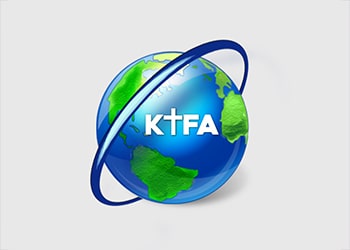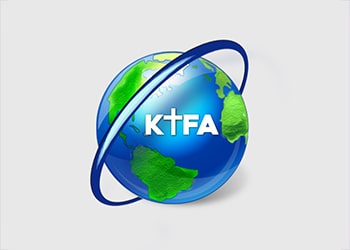KTFA:
Frank26: “LIKE A GEIGER COUNTER THE CBI ROAMS”………….F26
The outlets seized money in Iraqi dinars and dollars whose owners tried to smuggle them out of the country
– Baghdad
On Thursday, the Border Ports Authority announced the seizure of funds in Iraqi dinars and dollars whose owners attempted to smuggle them out of the country.
A statement by the authority, seen by Al-Iqtisad News, said: “The Trebil border port was able to arrest an Iraqi traveler in possession of (7) MasterCard cards at the departures checkpoint without declaring them, and after examining them with the POS machine at the Civil Customs Center, it was found that the total amounts amounted to (52,829,000) fifty-two million eight hundred and twenty-nine thousand Iraqi dinars.”
The statement added, “The Shalamcheh border port was able to arrest an Iraqi traveler in the departure hall who did not have official documents in possession of (62) thousand US dollars. He tried to smuggle it by concealing it in a professional manner.”
He pointed out, “Their statements were duly recorded and they were referred, along with the seized items, to the competent judicial authorities to take legal measures against them.” LINK
Multiple advantages and an important turning point… How did electronic payment methods affect the Iraqi economy?
2/22/2024 Baghdad
The process of gradual transformation towards the use of electronic payment methods has constituted an important economic turning point in Iraq, especially with government support that stresses the necessity of adopting this type of dealings in all governmental and private departments, which specialists describe as “important”, stressing that the transformation towards…
The use of “electronic money” represented by payment cards, and abandoning cash dealing, carries several advantages, including eliminating many cases of corruption, absorbing citizens’ hoarded cash, as well as the possibility of reducing the rise in inflation after using small amounts in buying and selling operations through points. Electronic sales, according to the official newspaper.
This electronic transformation of the use of money in daily transactions represents the utmost importance in the government’s directions, which is making great efforts to complete this direction, especially after “the Council of Ministers had previously obligated private educational institutions, universities, private colleges, fuel processing stations, centers and shops of all kinds.” Restaurants, pharmacies, private medical clinics, stores, all wholesale and retail marketing outlets, professionals, and others that require payment for their interests within the boundaries of the Baghdad Municipality and the governorate centers and districts throughout Iraq, with a minimum amount of their cash receipts through the electronic point-of-sale (POS) system. .
Despite the short period of time in which it was officially decided to actually start using electronic payment methods (POS) in the country, “the World Bank believes that the infrastructure for electronic payment systems in Iraq is the best in the region,” praising during a meeting with the Governor of the Central Bank, Ali Mohsen Al-Alaq, Director of the World Bank Office in Iraq, Richard Abdel Nour, explained, “The Central Bank’s procedures for facilitating financial transfers to different segments in Iraq.”
Al-Alaq had confirmed that “the Central Bank and the government give great priority to the issue of electronic payment because of its important economic repercussions and raising the level of transactions away from excessive use of cash,” indicating that “the Iraqi economy is a cash economy par excellence and the electronic payment process aims to reduce the economic degree of cash in a way.” big “.
The Central Governor added, “The Prime Minister is very supportive of the process of transitioning to electronic payment and holds successive and continuous meetings in order to strengthen the procedures related to this issue. We have made important progress in arranging electronic payment at the level of collection and payment in state institutions.”
The “gradual” dispensing with paper money is, according to a member of the Iraqi Economists Association, economic researcher Muqadam Al-Shaibani, of great importance capable of achieving packages of positive results, especially since the dissemination of electronic payment tools in all stores will contribute to gradually abandoning the use of cash, and this will be It has significant consequences for the national economy.
Al-Shaibani also pointed out that the government granted privileges to all store owners by exempting them from tax if they use electronic payment methods, and this constitutes an important incentive, pointing at the same time to what he described as the “fundamental point” that the electronic payment process can achieve.
He explained the possibility of absorbing approximately 92% of the cash mass saved in homes after the complete shift towards electronic currency dealing, as the banking system will be able to invest it in supporting productive projects that contribute to the continuation of the money cycle and reduce inflation rates and also contribute to a high degree in eliminating red tape and corruption in institutions. The state, stressing the need to issue punitive decisions on public and private institutions and agencies that are reluctant to implement and publish electronic payment tools.
It is noteworthy that the Association of Private Banks, in a statement to the official agency, counted the number of electronic payment devices and payment cards during the year 2023, confirming that this issue is witnessing a major transformation.
The Executive Director of the Association of Banks, Ali Tariq, said: “The electronic payment file is making continuous progress thanks to the support and directives of Prime Minister Muhammad Shiaa Al-Sudani, and the government’s insistence on achieving this goal has stimulated all institutions, whether governmental, private or financial institutions, to cooperate in the field of providing electronic payment tools to the citizen.” Across the public and private sectors.”
He pointed out that “after the issuance of the Council of Ministers’ decision to generalize electronic payment last year, a very significant progress and leap was achieved with regard to the number of points of sale, whether in the private or government sector, as it rose in just half a year from about 7,000 devices to 24,000 devices at the end of the same year.” 2023, expecting that “the number of electronic payment devices will increase further during the year 2024.”
He pointed out that “nearly two and a half million cards were issued in 2023, whether prepaid cards or cards linked to an account to activate them in this field.” LINK
****************





